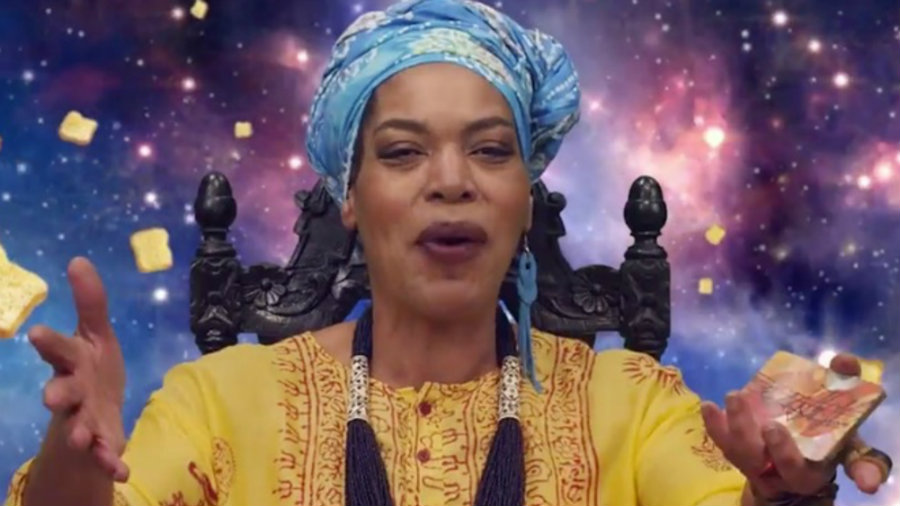Psychic Miss Cleo, whose actual name was Youree Del Cleomill Harris, died Tuesday morning after her fight against cancer. Attorney William Cone confirmed her death to the NBC News. Harris died at hospice care center in Palm Beach County, Florida. She had recently left the hospital and died at 53.
Harris was famous, or infamous, for her late TV show that hosted a hotline at the end of the 1990s. She was employed by the Psychic Readers Network and her unique way of asking her audience to call her marked a generation.

Miss Cleo had a Jamaican accent and used to dressed with a colorful, ethnic style, and with her attractive personality and her “correct guesses,” she became famous among those who read the tarot. She also provided advice to her callers, especially regarding love troubles. Her peculiar phrase “call me now” is still recognize by people old enough to had watch TV in the late 1990s and the early 2000s.
One of her most famous commercials portrayed a conversation between Miss Cleo and a female caller. Miss Cleo asked her if it was the stupid one or the married one that invited her to go out and the caller answers her “the married one.” Miss Cleo continues and advice her caller not to go out with him but says she is going to do it in spite of her warning because the Tarot had shown her that. Then, Cleo said the catchy phrase with her Jamaican accent, “call me now,” and convinced people to try to get in contact with her for guidance, because according to her, the Tarot can lead the way through life.
Youree Del Cleomill Harris failed to see in the cards a big scandal and a lawsuit
In 2002, the Federal Trade Commission issued a lawsuit against Cleo, the Psychic Readers Network, and Access Resource Services that claimed Harris, the two companies made over $1 billion with Miss Cleo’s show that tricked people. The lawsuit included misrepresenting the nature of the “free” readings offered, failing to make required cost disclosures in ads, and threatening to report negative information to credit bureaus if a caller refuse to pay, Vice said.
And because Harris was the face and the voice of the network was attacked and accused of owning vast quantities of money because of her show and calls. But later on, the Federal Trade Commission found that Miss Cleo was just an employee and was released from the lawsuit.
The federal lawsuit ordered the companies to forgive $500 million in customers fees and later in court, PRN’s owners Steven Feder and Peter Stoltz settled the suit to a $5 million fine.
Harris told in an interview to Vice that PRN used her face and won $24 million a month for two years, but she was not receiving her fair share. She said she had a bad contract and for her first 30-minute infomercial for the network, Miss Cleo only made $1.75 for the 2 and a half days she was on set. Harris said to the interviewer that people often believed that she had more money than God.
“Well, God is a poor son of a bitch,” she used to respond
Also in 2002, the Seattle Post-Intelligencer published an investigation that revealed that Miss Cleo was not Harris’ only alias. In the investigation, a longer list of former colleagues accused Harris of cheating them and faking her Jamaican accent.
The New York Times says that a former cast member stated that her accent was indeed fake and said that she was born and raised in LA, information later confirmed by BuzzFeed where Harris birth certificate was made public.
Harris appeared in the video game Grand Theft Auto: Vice City, and voiced a character named Miss Cleo. She also published a book. In 2006, she came out as a lesbian in an interview with The Advocate.
After the scandal and the damaged caused to her reputation, Miss Cleo left the spotlight and reappeared in the documentary Hotline.
Source: The New York Times
